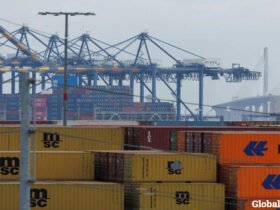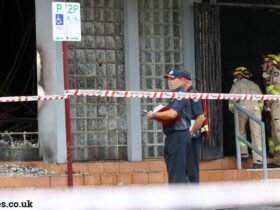Syrian President Bashar al-Assad flees to Moscow as rebel forces successfully seize control of Damascus.
In a dramatic turn of events, Syrian President Bashar al-Assad has reportedly fled Damascus and arrived in Moscow, as opposition rebel forces successfully took control of the Syrian capital. This unexpected move marks a significant shift in the ongoing Syrian conflict, raising questions about the future of the country’s governance and stability.
Assad’s Flight Amidst Rising Rebel Momentum
Late yesterday evening, sources confirmed that President Assad left Damascus under undisclosed circumstances and landed safely in Moscow, Russia. The swift departure comes after weeks of intensified clashes between government forces and rebel groups striving to reclaim the capital. Witnesses in Damascus reported heavy fighting in key districts, leading to substantial damage and displacement of residents.
Rebels Declare Control Over Damascus
Rebel factions, united under the Syrian National Coalition, declared victory in capturing Damascus early this morning. The coalition announced plans to establish a transitional government aimed at restoring peace and rebuilding the war-torn nation. Leaders of the coalition expressed cautious optimism but acknowledged the immense challenges ahead, including restoring essential services and ensuring security across the city.
International Reactions and Future Implications
The international community has been closely monitoring the situation. Russia, a long-time ally of Assad, has not yet commented on the president’s relocation to Moscow. Meanwhile, Western nations and neighboring countries have called for calm and support humanitarian efforts to aid those affected by the recent battles.
Experts suggest that Assad’s departure could either pave the way for a peaceful transition or potentially lead to further power struggles within Syria. The involvement of foreign powers, including Russia and Turkey, is expected to play a crucial role in shaping the country’s path forward.
Humanitarian Concerns Escalate
Amid the political upheaval, humanitarian organizations are raising alarms over the worsening conditions for civilians. The capture of Damascus has disrupted access to vital services, including hospitals, schools, and markets. International aid groups are urging immediate assistance to prevent a humanitarian crisis as displaced families seek safety from ongoing violence.
Looking Ahead
As Syria stands at a crossroads, the world watches closely to see how the nation’s leadership and rebel forces will navigate the challenges ahead. The departure of President Assad marks the end of an era, but the road to peace and reconstruction remains uncertain. Efforts toward dialogue and reconciliation will be essential in ensuring a stable and prosperous future for Syria.Global Updates











































Got a Questions?
Find us on Socials or Contact us and we’ll get back to you as soon as possible.